Buttigieg and Sanders Move Up, Biden Slides After Bungled Iowa Caucuses

Key Takeaways
Pete Buttigieg’s first-choice share increases 5 points, followed by a 3-point bump for Bernie Sanders.
Joe Biden loses 5 points, now trails Sanders by 1 point.
Most Democrats are worried about 2020, while most Republicans are confident.
Former South Bend Mayor Pete Buttigieg of Indiana and Sen. Bernie Sanders (I-Vt.) are seeing their national stock rise in the wake of Monday’s Iowa caucuses as former Vice President Joe Biden bleeds support, leaving him and Sanders effectively tied for front-runner status.
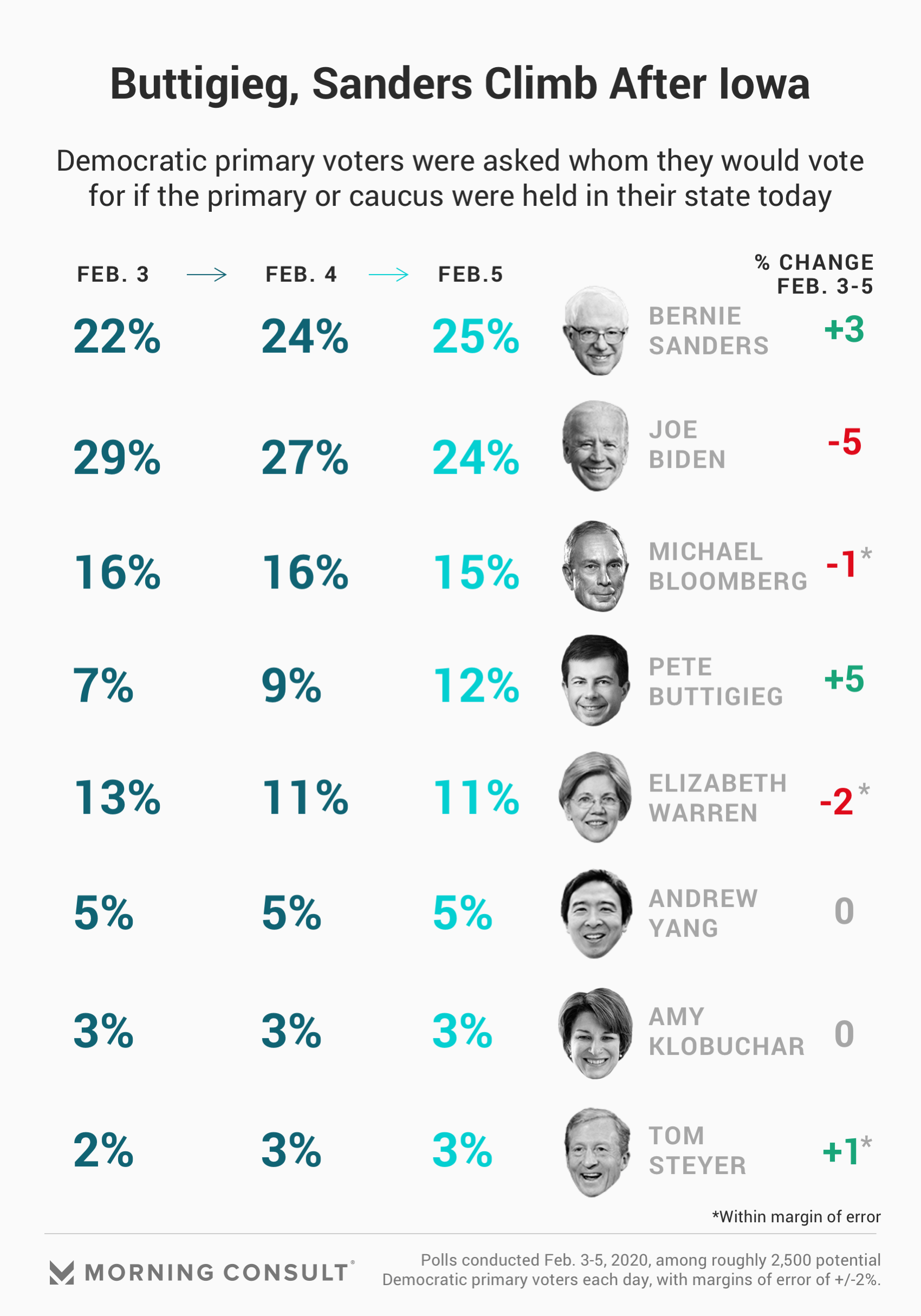
According to Morning Consult surveys of roughly 2,500 Democratic primary voters conducted each of the past three days, Buttigieg’s first-choice support nationwide rose 5 percentage points since Monday, to 12 percent. During that time, Biden’s first-choice support fell 5 points, ending at 24 percent on Wednesday, placing him 1 point below Sanders, statistically tied within the surveys’ 2-point margins of error.
The majority of the movement for Buttigieg and Biden came in surveys conducted Wednesday, as the picture became clearer about who won Iowa’s caucuses after a failure in the Iowa Democratic Party’s caucus-night reporting system Monday. On Tuesday evening, the state party began releasing results, and by Wednesday afternoon, 85 percent of precincts had reported, showing Buttigieg and Sanders vying for first place, followed by Sen. Elizabeth Warren (D-Mass.) and then Biden.
While Biden’s support fell in daily tracking, a separate Morning Consult poll conducted Feb. 4-5 found Democratic primary voters only slightly more likely to say they were more inclined to support Sanders than the former vice president following the Iowa results, 52 percent to 48 percent. The poll found a similar gap between Warren and Buttigieg (41 percent to 38 percent), within the sample’s 3-point margin of error.
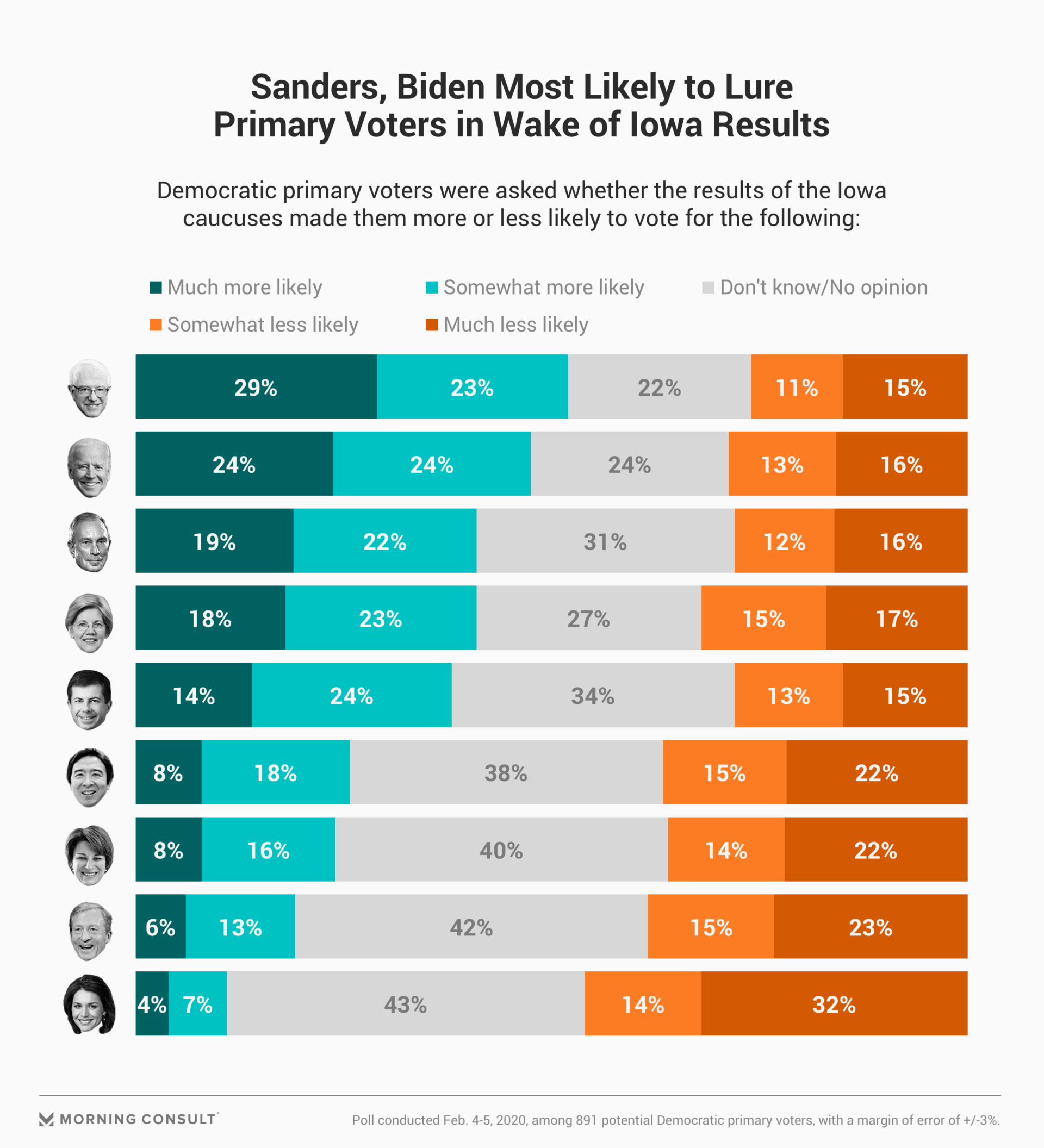
By a margin of 12 points, Democratic primary voters said they were less likely after Iowa to back Sen. Amy Klobuchar (D-Minn.), whose 3 percent first-choice support nationwide went unchanged after her apparent fifth-place showing in the caucuses.
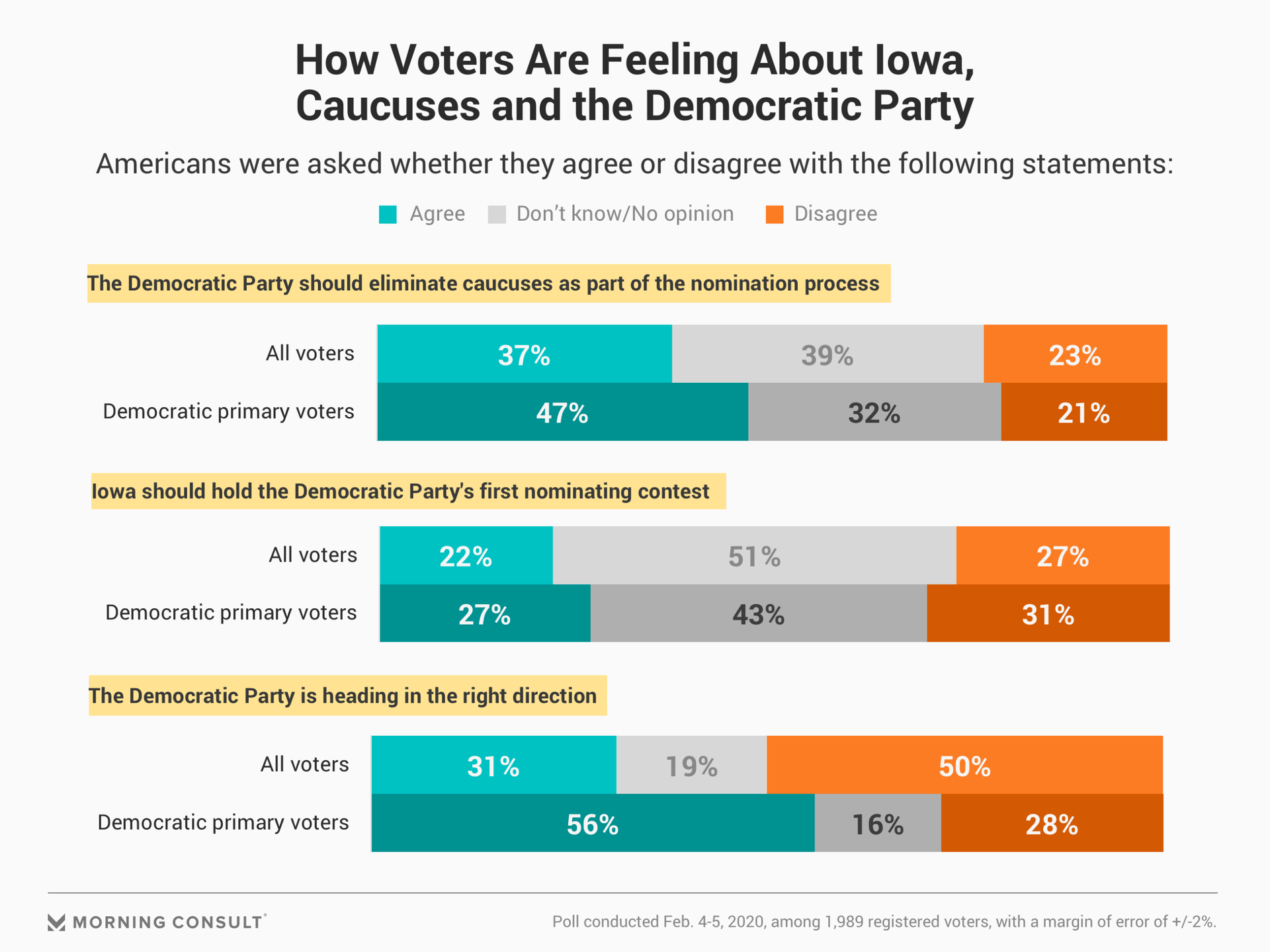
While Iowa Democrats’ struggles in tabulating the results from its first-in-the-nation caucuses has prompted many in the party to question whether the state should continue its leading role in the nominating contests, that debate doesn’t appear to be weighing particularly heavily on the minds of primary voters themselves, with the greatest share (43 percent) expressing no opinion about whether Iowa should continue to go first. Though Democratic primary voters don’t have strong feelings about whether Iowa should keep its place, a plurality (47 percent) said the Democratic Party should eliminate caucuses.
Looking ahead to November, Democrats are significantly more bearish than their GOP counterparts.
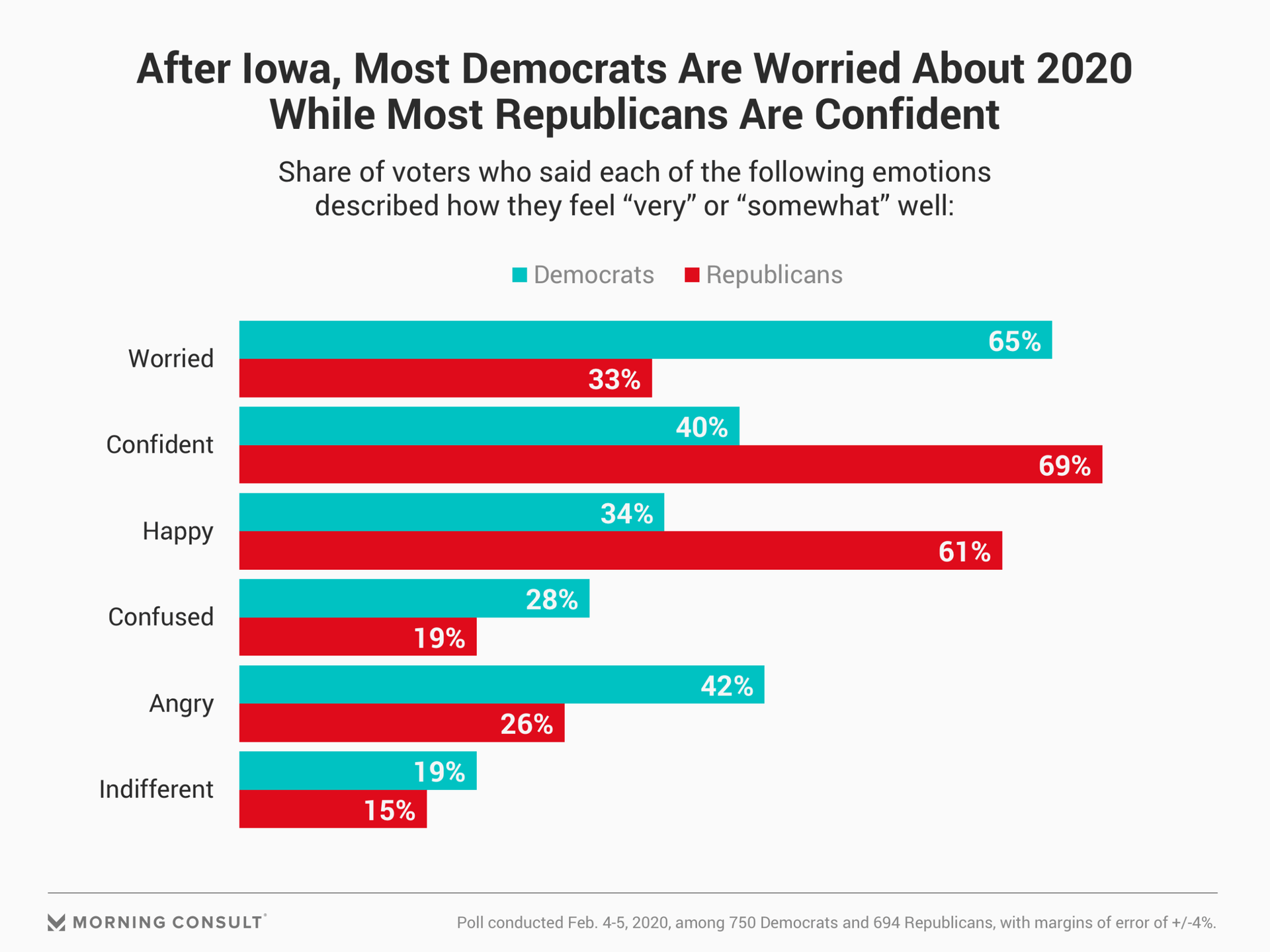
Democratic voters are nearly twice as likely to say they're worried about the election than Republicans (65 percent to 33 percent). Compared to the GOP, Democrats were 29 points less likely to say they’re confident about 2020. And just over a third of Democrats said they were happy about the 2020 election, compared to 61 percent of Republicans.
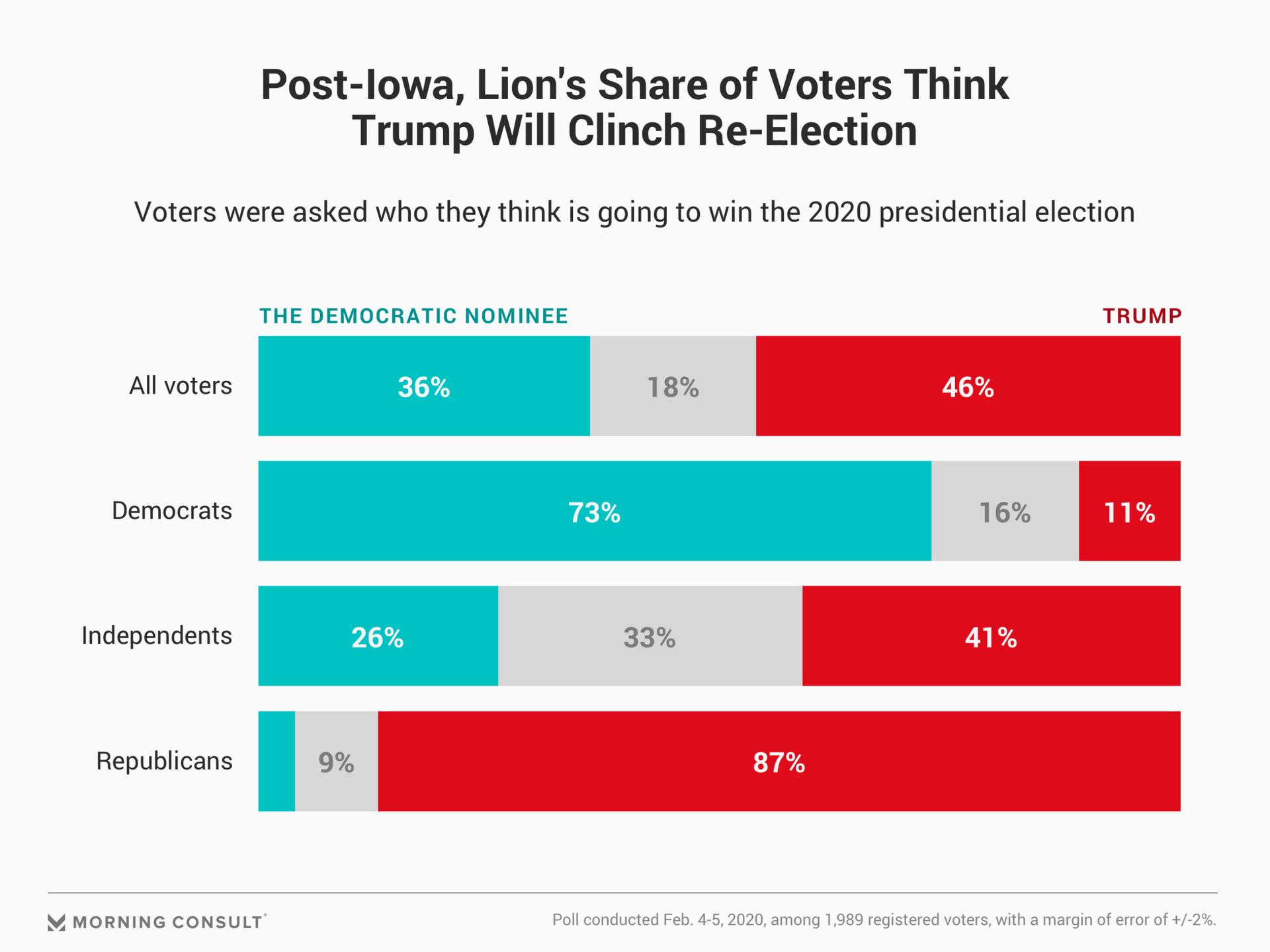
That confidence, or lack thereof, among Democrats was reflected in who they think will win in November -- Trump or the Democratic nominee. By a 14-point margin, Republicans were more likely to say Trump will win than Democrats were to say their nominee would triumph. Among voters overall, 46 percent said Trump will win and 36 percent said the Democratic nominee will win.
Eli Yokley is Morning Consult’s U.S. politics analyst. Eli joined Morning Consult in 2016 from Roll Call, where he reported on House and Senate campaigns after five years of covering state-level politics in the Show Me State while studying at the University of Missouri in Columbia, including contributions to The New York Times, Politico and The Daily Beast. Follow him on Twitter @eyokley. Interested in connecting with Eli to discuss his analysis or for a media engagement or speaking opportunity? Email [email protected].
Joanna Piacenza leads Industry Analysis at Morning Consult. Prior to joining Morning Consult, she was an editor at the Public Religion Research Institute, conducting research at the intersection of religion, culture and public policy. Joanna graduated from the University of Wisconsin-Madison with a bachelor’s degree in journalism and mass communications and holds a master’s degree in religious studies from the University of Colorado Boulder. For speaking opportunities and booking requests, please email [email protected].